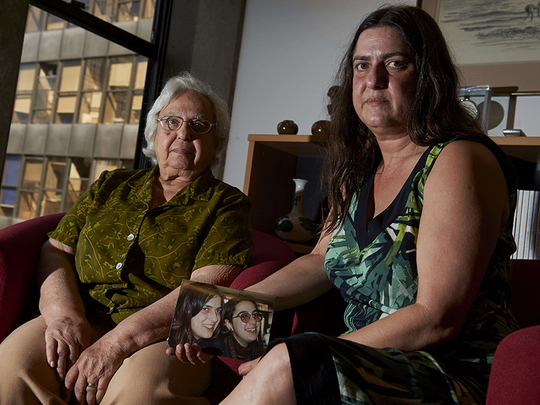
LONDON: Esther Hyman could be forgiven for hating the suicide bomber who killed her sister Miriam, but she has channelled her grief into trying to stop a new generation of Britons from turning to terrorism.
“As soon as I would experience it [the anger], I thought: ‘Well, that was a waste of energy’,” said Hyman, whose sister was one of 52 people killed when four Islamists attacked the London transport system on July 7, 2005.
“It helped me to discard the need to hold on to any negative feelings. I relinquished the need to forgive — that’s between my sister’s killer and his god.”
After Miriam’s death, her family set up an eye care charity in India in her name, which they view as her memorial. Now, 10 years on, they are trying to create a legacy.
They have developed a new online resource for schools to inform pupils about the London attacks and equip them with the personal skills to reject extremism.
The goal is to help them understand the consequences of violence, empathise with other cultures and learn how to express themselves peacefully and constructively.
“Our bottom line here is, if you’ve got a point to make, please don’t go around blowing up yourself and other people’s loved ones in the process,” Hyman said.
Among the tragic stories of that day, Miriam stands out for being particularly unlucky.
The 31-year-old freelance picture editor was evacuated from the London Underground at King’s Cross when one of three bombs on the network went off near the station.
She called her father and told him she was going to get a coffee nearby. Minutes later, she was killed when a fourth suicide bomber attacked a bus in Tavistock Square.
“How can you describe your child? You love her, but she was very lovable,” recalled her mother Mavis, 84.
“And I think that people who had even met her just once remember her. They remember her smile, they remember her caring and they remember her warmth.”
It took four days to identify Miriam’s body, during which her family toured London’s hospitals putting up missing posters, desperately searching for news of her whereabouts.
“Four days,” said Esther Hyman. “That was the most hellish part of all.”
The schools project, dubbed Miriam’s Vision, has been created with University College London’s Institute for Education, and includes lesson plans for pupils aged 11 to 14 ranging from history to dance.
It has been trialled in a school in south London and after a positive response from pupils — many of whom were only babies when the bombings took place — will now be incorporated into the curriculum there.
The Hymans are hoping that other schools will use their resource not only to educate, but also to help them fulfil a new legal requirement to act against extremism.
Since July 1, all public bodies including schools, hospitals and prisons in Britain have had a legal duty to “prevent people from being drawn into terrorism”.
Britain has been fighting the threat of home-grown extremism since the London bombings, which were carried out by four Muslim men from northern England.
Most recently concerns have focused around the hundreds leaving to fight with Daesh group in Iraq and Syria, including three teenage girls from East London.
“They really are pumping messages of hatred, they are pumping messages of negativity, and what we are doing by getting in as early as possible to countermand this,” said Mavis Hyman.
She added: “You will never overcome the grief of losing a child. Never. The question is how you deal with that grief.
“Our head space is still full of Miriam. But it’s not that we are grieving over her loss constantly, but we are working constantly to do positive things.
— AFP












